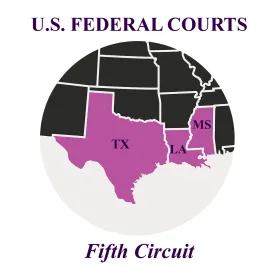The COVID-19 pandemic has affected processes and procedures for plaintiffs and defendants in may courts. But what about relief from a motion for default judgment entered by the court?
In William K. Hand v. Secure Lending Inc., 2020 U.S. Dist. LEXIS 142032, CA No. 20-607 SECTION “R” (3), United States District Court for the Eastern District Of Louisiana, August 10, 2020, the plaintiff brought a Telephone Consumer Protection Act (TCPA) class action in February of 2020 against Secure Lending Incorporated (Secure) for allegedly initiating autodialed telemarketing calls to Hand’s cellphone. Further, Hand contended that the calls included prerecorded messages and were made without his consent.
Hand delivered a courtesy copy of the complaint to Secure’s in-house counsel, who promptly acknowledged receipt and indicated that he would need time to line up local counsel to represent the company. After formal service, Secure failed to timely answer the complaint; a month after the answer deadline Secure in-house counsel asked for “an informal extension of time, attributing his delay to the difficulty imposed by the COVID-19 pandemic.” Specifically, “difficulty receiving return calls from prospective counsel in Louisiana in March and April of 2020” was cited. When, having received a further short extension, Secure in-house counsel returned to the extension well yet another time, Hand said “no” and filed a motion for default judgment, which the Clerk of the Court entered on in late May of 2020. Secure moved to set aside the default a month later.
Judge Sarah Vance set out three factors to be considered “in determining whether to set aside a default [-] ‘whether the default was willful, whether setting it aside would prejudice the adversary, and whether a meritorious defense is presented.’”
As to willfulness, the Court, although not condoning delay, found no “‘conscious decision to evade . . . litigation after being served.’” Citing the ongoing interaction, the Court concluded that “taken together, the present record does not demonstrate that SLI was ‘play[ing] games’ with the Court…”
As to the “meritorious defense” factor, Judge Vance required that the “defendant make ‘clear and specific statement[s] showing, not by conclusion, but by definite recitation of facts . . . that [it has] a valid defense’” to the claims in the complaint. Secure argued that “it did not use prerecorded messages and that it initiated the calls with the use of ‘a human interface.’” In the Court’s eyes that was enough “to show the possibility of a result ‘contrary to the result achieved by the default.’”
As to the final hurdle for Secure – prejudice to Mr. Hand – Judge Vance observed that there is no prejudice where “’the setting aside of the default has done no harm to plaintiff except to require it to prove its case.’” In that regard, the Court found unavailing arguments that documents might not be available and more specifically that additional class-related discovery might be required. As to the latter, Judge Vance observed “plaintiff merely argues that he will be inconvenienced if the Court ‘require[s him] to prove [his] case.’” Indeed, in a show of sympathy for Secure, Judge Vance noted that “the amount of [Secure’s] potential liability weighs in favor of setting aside the default” since Mr. Hand “seeks class certification and hopes to recover statutory damages from SLI in the amount of $ 1,500 per unlawful telephone call” under the TCPA.
Motion to set aside default granted. Certainly avoid such a predicament, but TCPAWorld lesson learned about factors in extricating oneself from such a situation.




 />i
/>i

